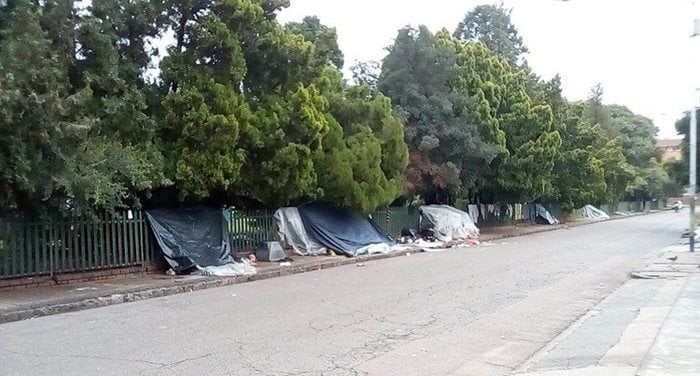
Related
Top stories

Marketing & MediaWarner Bros. was “nice to have” but not at any price, says Netflix
Karabo Ledwaba 13 hours




Logistics & TransportMaersk reroutes sailings around Africa amid Red Sea constraints
Louise Rasmussen 5 hours

More news


















“The residential facilities we have are usually old, and get severely cold in winter. We need hot water bottles, warm pyjamas, socks, beanies, slippers and gowns,” says Wilna De Beer, chief executive officer of Tshwane Leadership Foundation.
The foundation is one of 27 organisations which runs shelters funded by the Gauteng Department of Social Development in Tshwane. According to the department, the number of registered homeless people in the shelters in the province was 2,314 in March. The department only counts the number of homeless people registered and living in these shelters, not people living on the street.
City of Tshwane Mayoral Committee Member on social development, Peggy De Bruin, acknowledges there’s “no official figure of homeless people in the city.” But on every corner of the city centre, there are homeless people.
The foundation has seven residential care facilities in total - the Potter’s House (20 women and their children), Lerato House (15 teenage girls), The Inn (40 older persons), TAU Village (20 older men with chronic illness), Gilead community (40 people including those living with mental illness, terminally ill people, older people with mental illness as well as chronic illnesses), Tswelelang (eight men) and Burgerspark House (eight women).
De Beer expects more people to come to the shelters as winter approaches. She says the organisation needs help to buy material for winter. At Kitso Lesedi, which shelters 343 people, there are not enough beds and blankets for the winter, says chief executive officer Maki Tselapedi.
The Gauteng Department of Social Development spokesperson, Feziwe Ndwayana, acknowledges that some of the shelters it finances have worn-out beds and blankets and others do not have beds at all. The Department budgeted R87.5m to deal with homelessness in 2022-3 compared to about R84m in 2021-22.
Violet Ramabodu says she only goes to the shelters when she needs food and clothes. “I cannot stay there full-time because there are too many rules and I cannot be controlled by people.”
De Bruin urged homeless people to use the shelters. She said shelter management reports any violence to the police.

GroundUp is a community news organisation that focuses on social justice stories in vulnerable communities. We want our stories to make a difference.
Go to: http://www.groundup.org.za/